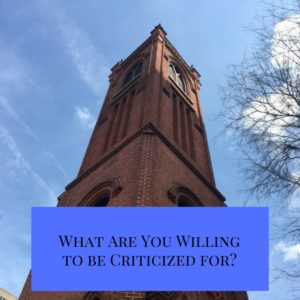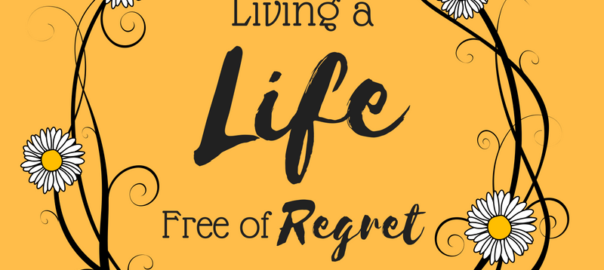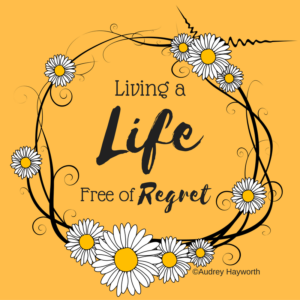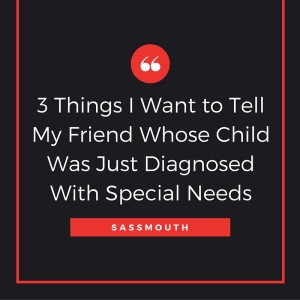Yesterday was Ash Wednesday and I’ve been playing over and over in my mind a line that the Rector said during the sermon.
“What are you willing to be criticized for?”
This post has been brewing in my head for awhile, months actually. I’ve started and stopped it three times over the last nine months, walking away from it, with just a jumble of thoughts left typed on the page, saved for another day.
This post started after I wrote the piece about Brock Turner, and the dumpster fire that surrounds him and the judge in the case. I revisited it after he was let out of jail, and my piece was syndicated on another website. And then, last week, I went on a rant of thoughts after a piece of mine ran on Scary Mommy.
A month ago, I wrote a piece for Scary Mommy, titled ‘My Grandpa was a Sexual Predator. Thank God My Parents Listened to Me’, and it was published last week.
This piece is the most vulnerable and exposing piece I have ever written about being abused, and I questioned whether or not to even share it on my social media.
The trolls tracked me down and came after me with a vengeance. I have a very strict rule of never reading the comments, and I made the mistake of breaking this necessary rule.
The aftermath of that piece being published is what compelled me to finish writing this post today. So, bear with me, because this rant is long, but important for me to say.
Not only did trolls tear me up, they tore my parents up. Now, I want you to think about this. In order for these trolls to contact me, they had to click on my bio on the Scary Mommy website, go to my blog, find the ‘contact me’ section, click on the email and then write out the email. That’s a lot of effort to email nastiness.
The other phenomenon that has been happening for the last eighteen months, is that every time I write about the abuse, I get a slew of emails offering me advice. I get offers to find me a therapist, offers of hallucinogens to help me move past my trauma, and emails from people smugly telling me that they ‘got over’ their abusive childhoods or when they were raped.
So, I’m going to break alllll of these down for you.
First of all, the details that I have written about are barely a drop in the bucket to what happened. The piece that was published last week had details in it that only my therapists knew, and I was cautious in putting those out there. Frankly, it’s no one’s damn business to know every detail about it unless I want to tell you. I hold some of it back because there are innocent people in my life that I love and am protecting from getting hurt. I don’t have to share details, but I do because there are people out there that need to know that they are not alone in their struggles with the aftermath of abuse.
I also want to be clear that there are only so many details that can be included in an 800 word essay. This abuse and rape that occurred happened more than twenty years ago and some up to thirty years ago. Times are very different, statute of limitations are different, and evidence collection is different.
To clear up all of the readers out there that continue to email me and recommend that I get help, please stop. I retired three therapists and a psychiatrist for goodness sake. I got the help I needed many years ago, which is how I am able to write about what happened to me.
There seems to be some confusion that when people talk about something hard that they have experienced, that they need help. I don’t see it that way at all. I find that the people that need the most help, are the ones who don’t talk about their problems. This does not mean you need to constantly talk about your past. I mean that I am able to have conversations about what happened because I have processed my experiences.
I’ve written extensively about these experiences. About the hurt and the anger. About the eating disorder that followed and my hesitancy to trust others. And yet, I have held back from fear. Fear of what people will think about the recesses of my mind. People are appalled at the fraction I have shared. But if I pulled the curtain back all the way, and the horror show appears, what will happen? Will people think something is wrong with me? The answer is probably and most likely based on the emails and feedback that I have already received.
Envisioning this shame is what has held me back from fully writing what I want to write. From stripping it all back and finishing the next draft of the novel I’ve been working on. I’ve been terrified of what people will think when they see the damage that was actually done.
I’m tired of holding back.
It wasn’t easy to get to who I am. It was HARD. Really damn hard. In addition to the therapists and psychiatrist, there was therapy on the daily, weigh-ins at the doctor, and the entire time feeling the weight of shame for something I did not do. While I left all of the therapy, psychiatrists and weigh-ins behind twenty years ago, the shame is something that has never gone away. I took on shame of someone else’s actions. It’s their shame, not mine. I should feel hurt, and angry, but not shame. I have shame about the aftermath because that was the truly repulsive part. While the abuse and rape were grotesque, the aftermath was the real calamity.
We need to start talking about the chaotic disaster of the aftermath of trauma. Of what actually happens to a person when an intrusion happens to them. We are doing a disservice to people to lead them to believe we can all have a happy ending without trudging through the truly gruesome wreckage that will follow.
People think I can’t get over what happened to me, as if I am paralyzed and can’t move forward because I am telling a part of my story, the story of who I am. We all have parts of our story, how we grew up, who raised us, who was instrumental in shaping our minds, where we went to school and who we hung out with. Experiencing abuse is part of my story, one part that I am not willing to dismiss to make people more comfortable.
No, I’m not ‘over it’, but I am living the life of my choosing, and I moved forward many years ago. If you tell me that you got ‘over’ abuse, you are lying and doing a disservice to anyone who experiences abuse. Stop it with this narrative. No one ‘gets over’ it. Science tells us that brains are fundamentally changed after trauma. When you tell someone they should get over it, you are telling them that if they can’t, they should feel shame for experiencing valid feelings.
I have a lot of people tell me ‘but you look so happy’. I look happy because I am happy. I chose to accept that the aftermath is a disgusting mess, but if I went through it, that I could have my happily ever after. So, I went through it, I worked my butt off, with the goal in mind that I would spend the rest of my days on my terms. When we do not give people permission to acknowledge the hardest part of their story, the aftermath, they can’t get to their happy. Happy endings don’t happen by accident, they happen when you blindingly claw out of the black abyss, claw mark by claw mark.
When I talk about my unsightly aftermath, I talk about it because I know my strength. I have no question that there is nothing that I cannot handle, because I have looked evil in the face and decided how my story would end. I have never felt more confident in my strength than I do today, regardless of how uncomfortable it makes others feel. I will continue to write my truth because there are others that need to hear that you can have the life of your own choosing after trauma.
To the trolls who continue to send me hate mail and question why I write, I say this: You are the reason victims do not report. You are the reason that the cycle of shame continues because when a victim shares details of THEIR story, you question their behavior and not the perpetrator. When you are nasty to people who are willing to tell their story, the victims around you keep their mouths shut because of your judgment and you are implicit in the cycle of abuse continuing.
So, to end this long rant, I end it with saying I know what I am willing to be criticized for. After the hate mail I got last week, I wondered if writing my truth was worth the criticism and hate. It is worth it, and the sign I needed, I heard in church yesterday. I, and I alone, own the ending to my story. I will continue to write my truth and I will continue to talk about the ugly aftermath. It’s important that someone does so that when someone else is in the midst of their terrible truth, they know that they can choose their own ending, too.




